BOYCOTT OF JAPANESE PRODUCTS
입력 2019.07.17 (15:04)
수정 2019.07.17 (16:45)
읽어주기 기능은 크롬기반의
브라우저에서만 사용하실 수 있습니다.
[Anchor Lead]
It's been about two weeks since a campaign boycotting Japanese goods began in South Korea following Tokyo's export restrictions. But the boycott doesn't appear to be a one-off movement but is rather spreading nationwide, involving more and more citizens and organizations.
[Pkg]
A placard is hung outside a pub. It reads that a glass of Japanese beer costs one million won, -- basically meaning it's not on sale. Another restaurant has a sign issuing a warning to Japanese Prime Minister Shinzo Abe. There were boycotts of Japanese products in the past in Korea but it's different this time. More than just a temporary consumer movement rejecting Japan-made items, restaurants and stores have also voluntarily stopped selling Japanese products.
[Soundbite] "Boycott Japanese Goods!"
Leaders of a supermarket cooperative agreed to expand the boycott nationwide and to all corners of their neighborhood.
[Soundbite] IM WON-BAE(COOPERATIVE PRESIDENT) : "We are suffering losses as well, but our campaign has progressed to include Japanese tobacco and beer."
Some 36-hundred mom and pop stores and 23-thousand supermarkets have begun taking down 100 different kinds of Japanese products off their shelves. The larger supermarket chains and convenience store headquarters have yet to issue their official stances. But with Japanese beer sales plunging more than 20% in two weeks, some store owners have taken their own steps and stopped selling Japanese products.
[Soundbite] LEE HO-JUN(CONVENIENCE STORE OWNER) : "The customers are the first to ask whether we sell Japanese beer while stressing we shouldn't consume it."
Lotte Group, which owns many Korean-Japanese joint ventures, is caught in a dilemma and struggling with countermeasures. One trillion won in its market cap vanished in just 2 weeks due to the boycott. Lotte Group Chair Shin Dong-bin has been rather silent to reporters' questions.
[Soundbite] SHIN DONG-BIN(LOTTE GROUP CHAIRMAN) : "(Are there any results from your Japan trip?) I'm sorry."
Local county, district and city heads nationwide have also adopted a resolution denouncing Japan's economic retaliation.
It's been about two weeks since a campaign boycotting Japanese goods began in South Korea following Tokyo's export restrictions. But the boycott doesn't appear to be a one-off movement but is rather spreading nationwide, involving more and more citizens and organizations.
[Pkg]
A placard is hung outside a pub. It reads that a glass of Japanese beer costs one million won, -- basically meaning it's not on sale. Another restaurant has a sign issuing a warning to Japanese Prime Minister Shinzo Abe. There were boycotts of Japanese products in the past in Korea but it's different this time. More than just a temporary consumer movement rejecting Japan-made items, restaurants and stores have also voluntarily stopped selling Japanese products.
[Soundbite] "Boycott Japanese Goods!"
Leaders of a supermarket cooperative agreed to expand the boycott nationwide and to all corners of their neighborhood.
[Soundbite] IM WON-BAE(COOPERATIVE PRESIDENT) : "We are suffering losses as well, but our campaign has progressed to include Japanese tobacco and beer."
Some 36-hundred mom and pop stores and 23-thousand supermarkets have begun taking down 100 different kinds of Japanese products off their shelves. The larger supermarket chains and convenience store headquarters have yet to issue their official stances. But with Japanese beer sales plunging more than 20% in two weeks, some store owners have taken their own steps and stopped selling Japanese products.
[Soundbite] LEE HO-JUN(CONVENIENCE STORE OWNER) : "The customers are the first to ask whether we sell Japanese beer while stressing we shouldn't consume it."
Lotte Group, which owns many Korean-Japanese joint ventures, is caught in a dilemma and struggling with countermeasures. One trillion won in its market cap vanished in just 2 weeks due to the boycott. Lotte Group Chair Shin Dong-bin has been rather silent to reporters' questions.
[Soundbite] SHIN DONG-BIN(LOTTE GROUP CHAIRMAN) : "(Are there any results from your Japan trip?) I'm sorry."
Local county, district and city heads nationwide have also adopted a resolution denouncing Japan's economic retaliation.
■ 제보하기
▷ 카카오톡 : 'KBS제보' 검색, 채널 추가
▷ 전화 : 02-781-1234, 4444
▷ 이메일 : kbs1234@kbs.co.kr
▷ 유튜브, 네이버, 카카오에서도 KBS뉴스를 구독해주세요!
- BOYCOTT OF JAPANESE PRODUCTS
-
- 입력 2019-07-17 15:38:51
- 수정2019-07-17 16:45:30
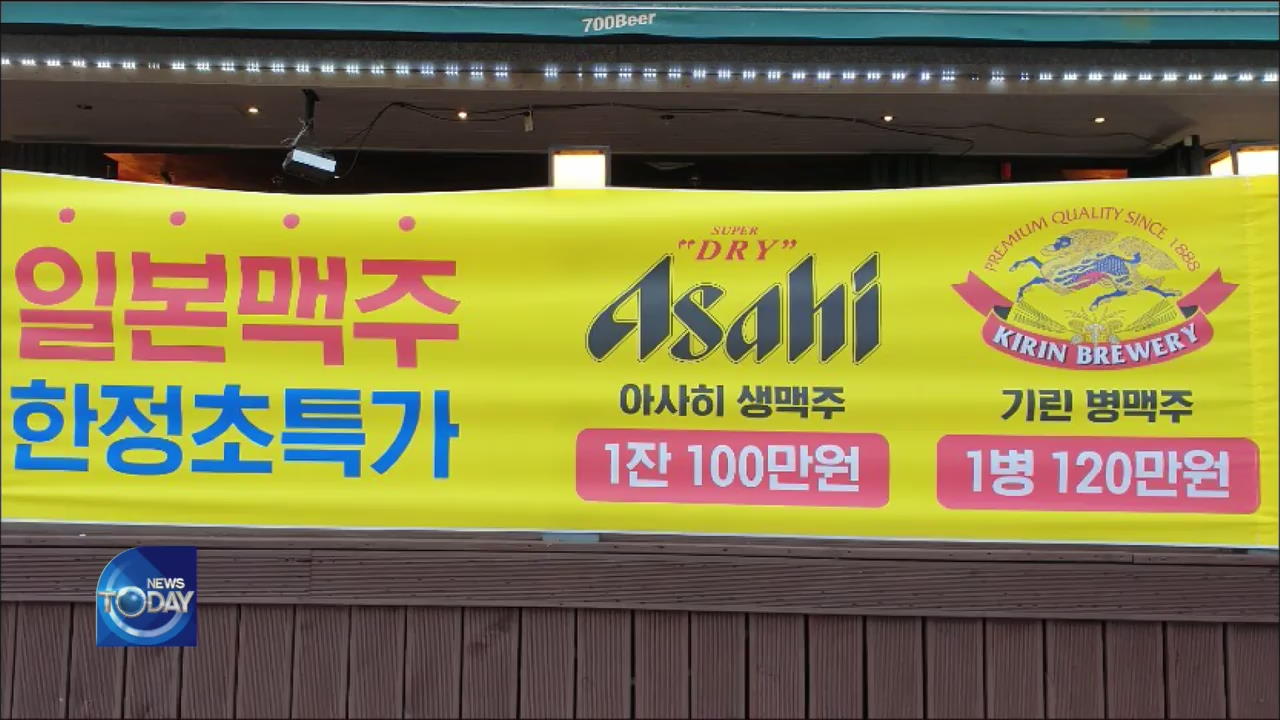
[Anchor Lead]
It's been about two weeks since a campaign boycotting Japanese goods began in South Korea following Tokyo's export restrictions. But the boycott doesn't appear to be a one-off movement but is rather spreading nationwide, involving more and more citizens and organizations.
[Pkg]
A placard is hung outside a pub. It reads that a glass of Japanese beer costs one million won, -- basically meaning it's not on sale. Another restaurant has a sign issuing a warning to Japanese Prime Minister Shinzo Abe. There were boycotts of Japanese products in the past in Korea but it's different this time. More than just a temporary consumer movement rejecting Japan-made items, restaurants and stores have also voluntarily stopped selling Japanese products.
[Soundbite] "Boycott Japanese Goods!"
Leaders of a supermarket cooperative agreed to expand the boycott nationwide and to all corners of their neighborhood.
[Soundbite] IM WON-BAE(COOPERATIVE PRESIDENT) : "We are suffering losses as well, but our campaign has progressed to include Japanese tobacco and beer."
Some 36-hundred mom and pop stores and 23-thousand supermarkets have begun taking down 100 different kinds of Japanese products off their shelves. The larger supermarket chains and convenience store headquarters have yet to issue their official stances. But with Japanese beer sales plunging more than 20% in two weeks, some store owners have taken their own steps and stopped selling Japanese products.
[Soundbite] LEE HO-JUN(CONVENIENCE STORE OWNER) : "The customers are the first to ask whether we sell Japanese beer while stressing we shouldn't consume it."
Lotte Group, which owns many Korean-Japanese joint ventures, is caught in a dilemma and struggling with countermeasures. One trillion won in its market cap vanished in just 2 weeks due to the boycott. Lotte Group Chair Shin Dong-bin has been rather silent to reporters' questions.
[Soundbite] SHIN DONG-BIN(LOTTE GROUP CHAIRMAN) : "(Are there any results from your Japan trip?) I'm sorry."
Local county, district and city heads nationwide have also adopted a resolution denouncing Japan's economic retaliation.
It's been about two weeks since a campaign boycotting Japanese goods began in South Korea following Tokyo's export restrictions. But the boycott doesn't appear to be a one-off movement but is rather spreading nationwide, involving more and more citizens and organizations.
[Pkg]
A placard is hung outside a pub. It reads that a glass of Japanese beer costs one million won, -- basically meaning it's not on sale. Another restaurant has a sign issuing a warning to Japanese Prime Minister Shinzo Abe. There were boycotts of Japanese products in the past in Korea but it's different this time. More than just a temporary consumer movement rejecting Japan-made items, restaurants and stores have also voluntarily stopped selling Japanese products.
[Soundbite] "Boycott Japanese Goods!"
Leaders of a supermarket cooperative agreed to expand the boycott nationwide and to all corners of their neighborhood.
[Soundbite] IM WON-BAE(COOPERATIVE PRESIDENT) : "We are suffering losses as well, but our campaign has progressed to include Japanese tobacco and beer."
Some 36-hundred mom and pop stores and 23-thousand supermarkets have begun taking down 100 different kinds of Japanese products off their shelves. The larger supermarket chains and convenience store headquarters have yet to issue their official stances. But with Japanese beer sales plunging more than 20% in two weeks, some store owners have taken their own steps and stopped selling Japanese products.
[Soundbite] LEE HO-JUN(CONVENIENCE STORE OWNER) : "The customers are the first to ask whether we sell Japanese beer while stressing we shouldn't consume it."
Lotte Group, which owns many Korean-Japanese joint ventures, is caught in a dilemma and struggling with countermeasures. One trillion won in its market cap vanished in just 2 weeks due to the boycott. Lotte Group Chair Shin Dong-bin has been rather silent to reporters' questions.
[Soundbite] SHIN DONG-BIN(LOTTE GROUP CHAIRMAN) : "(Are there any results from your Japan trip?) I'm sorry."
Local county, district and city heads nationwide have also adopted a resolution denouncing Japan's economic retaliation.
이 기사가 좋으셨다면
-
좋아요
0
-
응원해요
0
-
후속 원해요
0










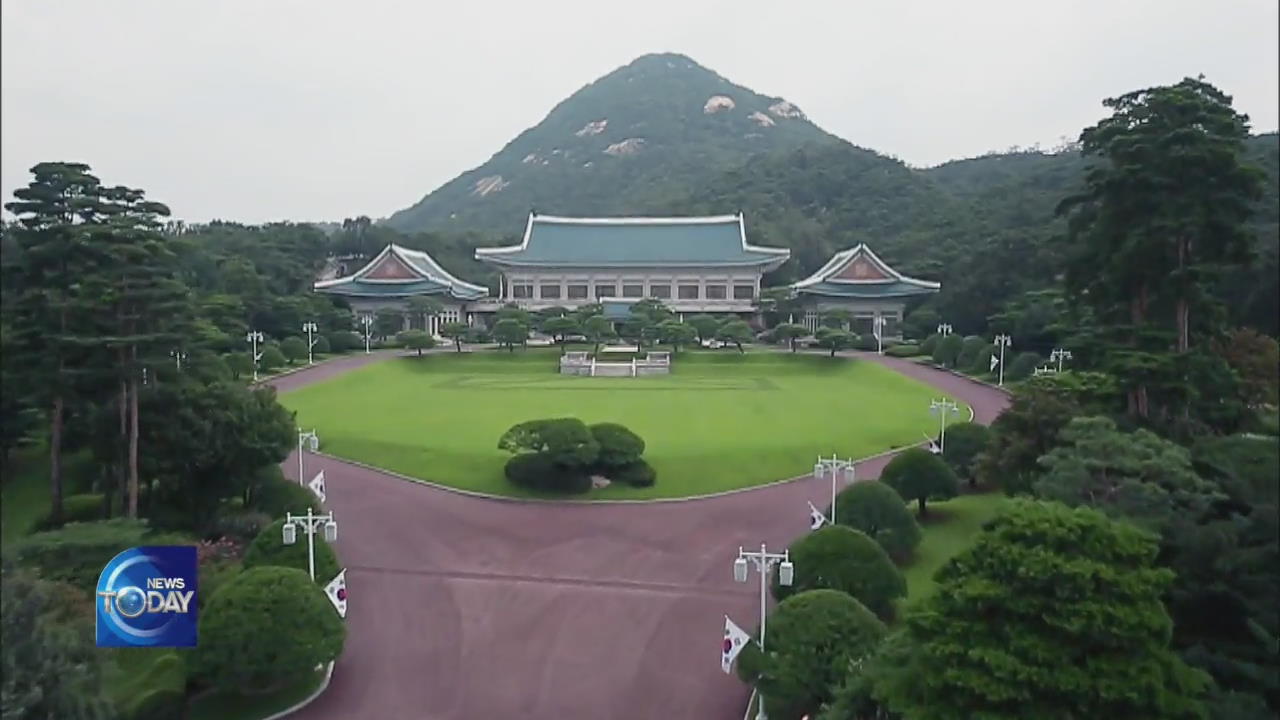
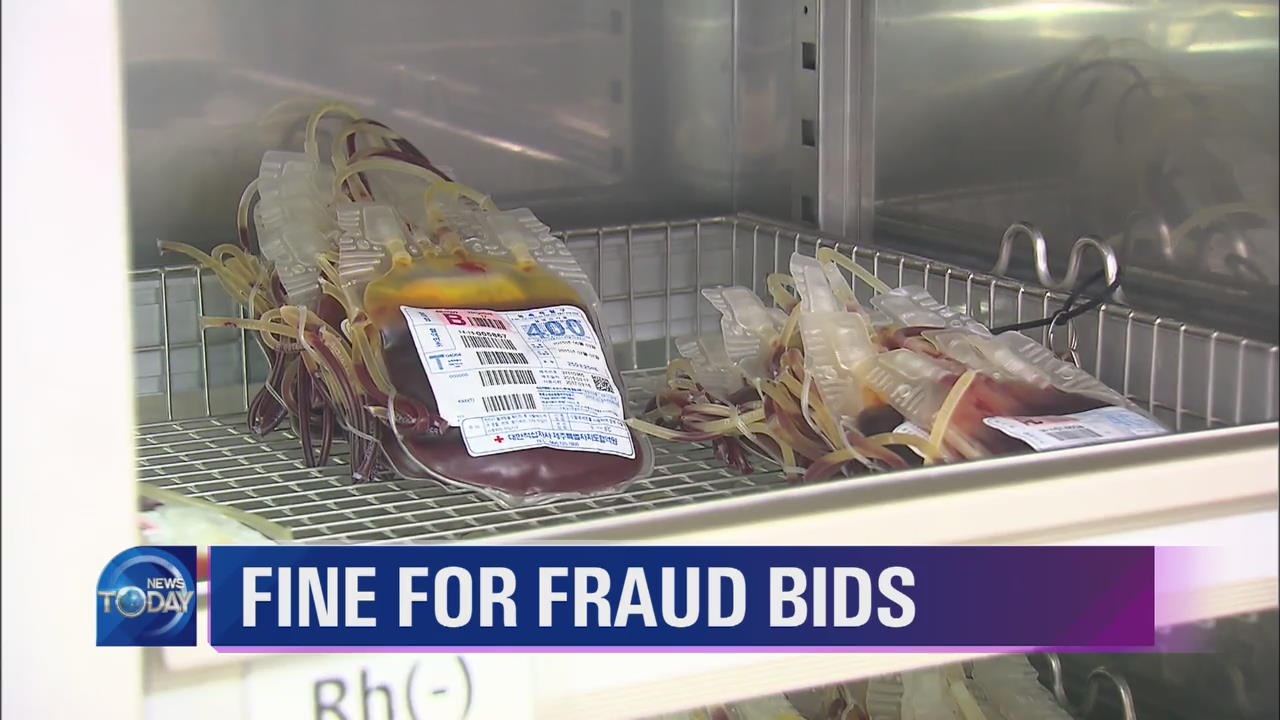

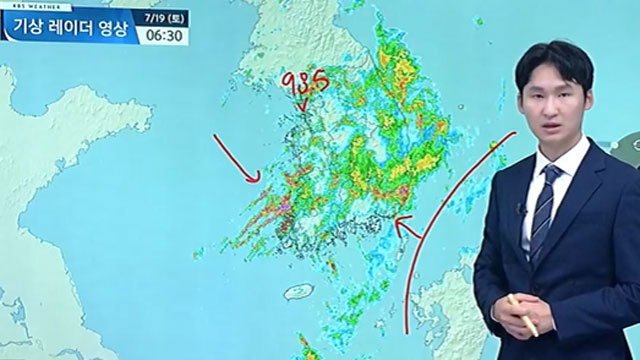

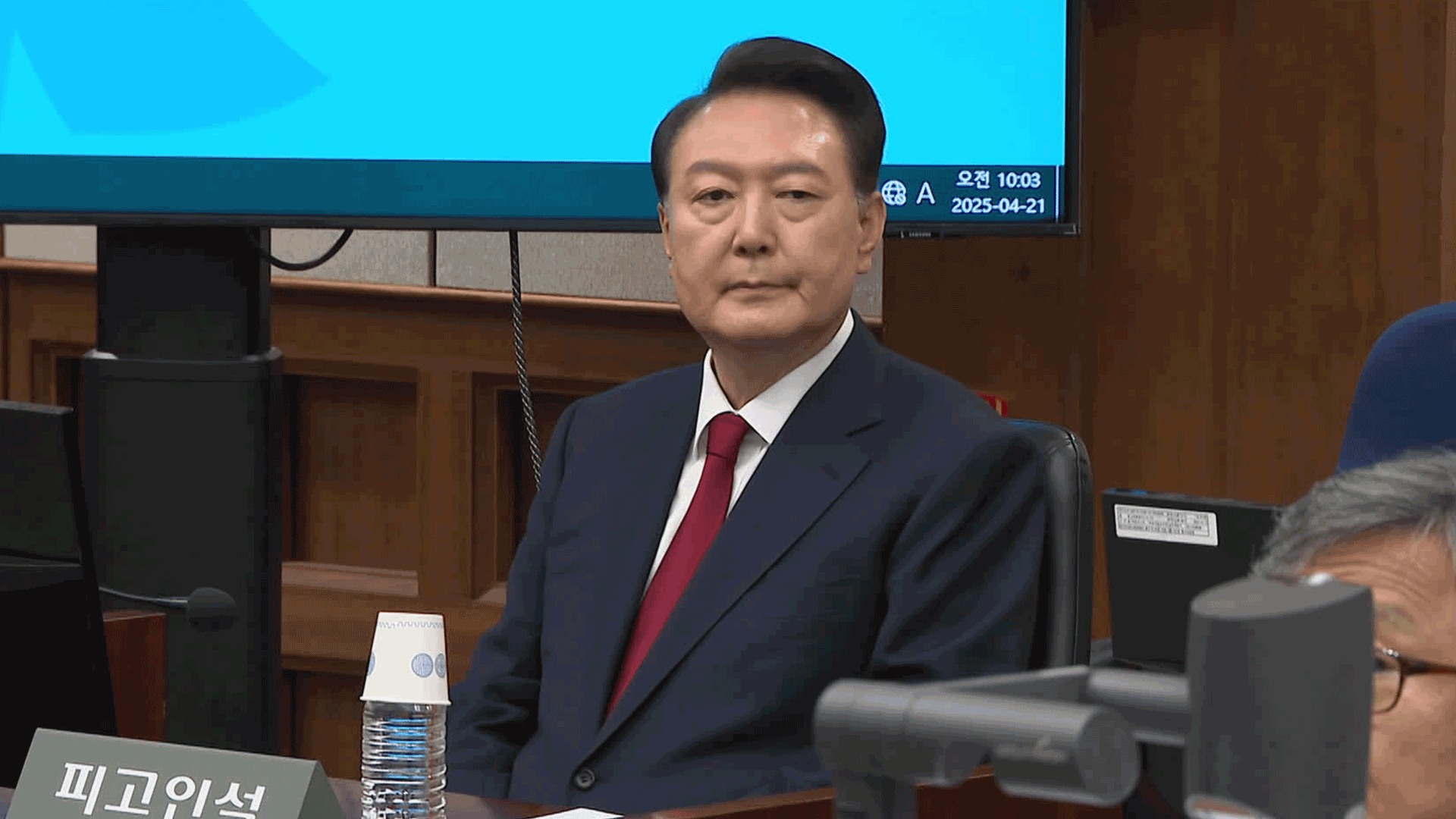

이 기사에 대한 의견을 남겨주세요.